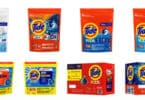The Centers for Disease Control and Prevention (CDC) is currently on high alert due to a potential link between three brands of recalled applesauce packets and numerous reports of high blood lead levels in children across the country.
Recalls were initially issued for WanaBana Apple Cinnamon Fruit Puree in 3-pack pouches of 2.5 oz on October 31, 2023, after reports of potential illnesses in children. The recall was later expanded on November 09 to include Schnucks Apple Sauce 90g pouches with cinnamon, and Weis Cinnamon Apple Sauce 90g.
To address this public health concern, the CDC has issued an alert on its website. The CDC advises medical professionals to be vigilant for cases of lead poisoning potentially linked to the recalled applesauce and to report any cases to local health authorities.
In a health advisory released on November 13, the CDC announced that they are investigating a possible connection between reports of high blood lead levels in 22 children and the three aforementioned brands of recalled applesauce pouches. These pouches were found to contain “extremely high levels of lead” during testing.
The affected products were sold under the following brand names: WanaBana, Schnucks, and Weis. They were available for purchase nationwide in stores and online. Customers are encouraged to visit the Food and Drug Administration (FDA) website for more information on identifying affected products and to return them to the place of purchase for a full refund.
If a child has consumed an affected product, medical care should be sought.
In October, the FDA initially cautioned against purchasing WanaBana apple cinnamon fruit puree pouches after discovering high levels of lead. The brand voluntarily recalled the product and released a press release expressing its commitment to product safety and consumer well-being. Customers who bought the recalled pouches were advised to immediately stop using the product and return it for a full refund.
As of November 7, the CDC has reported 22 cases of high blood lead levels in children. These cases have been identified in the following states: Alabama, Arkansas, Louisiana, Maryland, Missouri, New Mexico, New York, North Carolina, Ohio, Pennsylvania, South Carolina, Tennessee, Texas, and Washington. The affected children range in age from 1 to 3 years old. The CDC considers 3.5 micrograms of lead per deciliter of blood as the reference point to assess high blood lead levels. The investigation revealed levels ranging from 4 to 29 micrograms per deciliter in the 22 children involved, along with symptoms such as nausea, headache, diarrhea, vomiting, anemia, and changes in activity level.
Lead poisoning has no safe level of exposure in children, according to the CDC. Even low levels of lead in the blood can have negative effects on a child’s intelligence, attention, and academic performance. The long-term effects of lead poisoning can be permanent and impact growth, development, and the brain and nervous system. Learning, behavior, hearing, and speech problems are also potential consequences.
Given that children’s bodies are still developing and growing rapidly, the health effects of lead exposure are especially harmful to those under the age of 6, as stated by the CDC. Recognizing lead exposure in children can be challenging, which is why the CDC advises parents who suspect their child may have come into contact with lead to consult their child’s healthcare provider for testing.
If there is a concern that a child may have consumed an affected applesauce packet and is at risk of lead poisoning, it is advisable to contact a healthcare provider immediately.
More Recalls:







